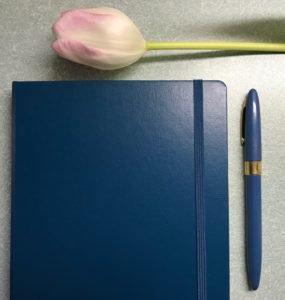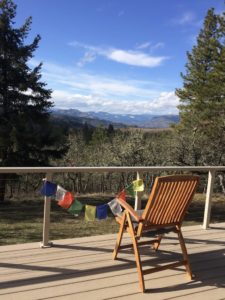I’ve never really put my body on the line. Sure, I’ve marched in protests, against U.S. invasions of Iraq, illegal deportations, lack of funding for AIDS research, marriage equality, reproductive rights, etc., and I’ve felt the wrath of onlookers. In Pride parades I’ve passed the perfunctory extreme Christian activists forcing themselves to vomit on the curb while others hold signs that say, “Gays burn in hell” or something catchy like that. Some have spit on me as I passed. But most Pride parades resemble extravagant birthday celebrations, phantasmagorically colorful and euphoric. Sure, I’ve had eggs thrown at me while I waited in line outside a popular lesbian-owned breakfast joint on Hawthorne. I’ve done phone-banking, leafletting, stuffed envelopes endlessly. My lawn sign against an anti-gay measure was shredded outside my home. I’ve had a death threat at work, a man ejaculate on my truck, been chased on the highway. But beaten? teargassed? arrested? Never.
When I study the pictures of the Stonewall riots of 1969, I see how tired the gorgeous black trans woman looks. She’s holding up the skirt of her white percale gown so she doesn’t trip in her stiletto heels. Her shoulders hold back the scoop neck bustline, her matching earrings dangling. Her lips, with a light glossy lipstick, are pursed, not smiling, not saying anything. She looks like she may be pulling her arm away from the undercover cop, leading her to the paddy wagon, his thick fingers on her silky, bulging bicep. She looks so tired of this routine, always the transsexuals, the transvestites, the cross dressers arrested first, paraded down the street, shoved into the wagon, paraded in the police station. She stares straight ahead.
In the black-and-white pictures of the riots, I mostly see young men, their hair a little shaggy, their shirts buttoned only part way up. They wear jeans or white bell-bottoms, tennis shoes. Some cock back their arms to throw stones or bricks or whatever they can find. One young man in particular, his hair falling over one eye, could be my cousin, his sinewy neck, his slender nose, the brown hair streaked with blond in the summer. He looks like he’s waiting for the right moment to strike a cop. But that cousin was only 8 years old in 1969, a year younger than I was, and he died when we were in our thirties. Perhaps I want to see him young again, standing up, on the edge of fighting as he often was when we were kids. I want to tell him, “Go ahead,” but it’s easy to cheer someone on to do something I’m not willing to do myself.
It’s the picture of the young white woman, her hair completely drenched with sweat, that shames me. She’s surrounded by cops, each white, each with a thick mustache, and she’s careening forward. A cop holds her on one side, another cop is reaching for her, another cop is holding another cop back, and she’s stretching her arm in front of her, her hand extended, wrist flipped up, the gesture for STOP, her mouth open in an O. Maybe she’s saying, Whoa. I don’t know, but the cop she’s trying to stop, his face is about a foot from her hand, and he looks tired. He’s looking at her. One cop looks at that lead cop, about to say something. One cop looks at the young woman, and one cop looks directly at the camera. His gaze is slack, like he’s in-between fear and anger, pausing between what he wants to do and what he has to do.
I would not have been that young woman. With bottles and bricks flying around me, with cops in riot gear, billy sticks hitting backs, with pushing and yelling and cops running down men, grabbing their shirts and spinning them to the ground, pinning them in neck locks, hitting them, I would have run. I would have gotten the hell out of there.
What if they had all been like me?
When is it time to say no? When is it time to risk your body, the pain of being hit, your head split, the pavement scraping you, your hands wrenched behind your back, the bite of handcuffs, a smelly jail cell, then protracted legal battles, the charges part of your permanent record? I can’t stand that I would have left that young woman yelling at the cops surrounding her, or that elegant black woman in the paddy wagon, her makeup thick and smooth, the hours she lay in curlers, or maybe just slid on the perfect wig. I still see her looking at me, her gaze to the side of the photographer, the way she doesn’t look someone like me (like the photographer, doing nothing) in the eye because she doesn’t want to see their shame, their inaction, their silence. She’s that respectful.
When is it time to put your body on the line?
I don’t want it to be soon. I think it might be soon.
Kate’s UPCOMING EVENTS (please let me know if you’re interested…)
ONLINE WRITING SALONS
1) Sunday evenings, 5-7pm, PCT, 8 meetings: Sept, 15, Sept. 22, Sept. 29, Oct. 13, Oct. 20, Oct. 27, Nov. 3, Nov. 10
2) Monday afternoons, 1-3pm, PCT, 8 meetings: Sept. 16, Sept. 23, Sept. 30, Oct. 14, Oct. 21, Oct. 28, Nov. 4, Nov. 11
Please join me for an Online Writing Salon using the Gateless Method. We’ll meet on your computer, using Zoom. (No need to get the app.) I’ll start each session with a prompt which may be text or image or music or motion. Then, we’ll write for as long as we can (perhaps 30 minutes) in order to leave time for all 10 people to read if they want. The session has 8 meetings, but not continuously. Please see the calendar.
This writing salon is a safe environment for writers to generate work, to clear their palates, to find their voice. If you have any questions about the format, the technology, the writing, please feel free to contact me. I encourage writers to sign up before the first session (the middle of September), or wait until the next session starts. I also hope to build a community and hope all participants will sign up for the whole session. ($200, payable through PayPal). Limited to 10 writers.
3) NEW: Online Salon for Poets
Tuesday evenings, 5-7pm, PCT. 5 meetings: Oct. 22, Oct. 29, Nov. 5, Nov. 12, Nov. 19.
This special Online Writing Salon for poets using the Gateless Method will offer generative writing and feedback on previous writing. We’ll meet, using Zoom. I’ll start each session with a prompt which may be text or image or music or motion. Then, we’ll write for about 10 minutes. Then, each poet will read her new work, receive feedback, and read a work that she has written beforehand and receive feedback on that as well. The session has 5 meetings. Please see the calendar. This writing salon is a safe environment for writers to generate work, find their voice, and shine light on what is working across their work. ($200, payable through PayPal).
WORKSHOPS
The Poet’s Toolkit: 3 tools
Honor your tender and fierce heart. Add tools to your poetry toolkit.
1) Monday, October 7, 6-8pm, PCT: You’ll start with SOUND, how your words can change your reader’s body. No experience necessary. You’ll write and share in a tremendously safe environment, using the Gateless Method. This online workshop will give you practical ways to distinguish this writing form from others, practice in applying the tool, and the light to show you how brilliantly you shine.
This workshop is completely online. You’ll meet at the same time, synchronously, write together online, and discuss online. You’ll laugh and learn together. (The cost is $60-$80, sliding scale.)
2) Tuesday, October 15, 6-8pm, PCT: The second will focus on LINE/BREAKS. You’ll explore the tension needed to hold a line, how linebreaks help breath and meaning, how the shape can enhance the subtle movement of thought. (The cost is $60-$80, sliding scale.)
3) Wednesday, October 23, 6-8pm, PCT: the third will focus on FIGURATIVE LANGUAGE/IMAGERY. You’ll explore the ways you can connect unlike things and reveal your unique sensibility through those leaps. In the metaphoric realm, you express the inexpressible. (The cost is $60-$80, sliding scale.)
All held online.
If you sign up for all three, you receive a discount: $150.
Limited to 10 participants.
RETREAT
Saturday, September 28, 10am to 4pm, Mosier, OR
Experience writing in the wind and oak forest of the Gorge. Listen to the stories and poetry inside you, and find this safe haven to write with others.
During this retreat, you’ll experience the Gateless Method and its radical nurturing: guided meditation, shoulder massage, prompts, boundless writing, and rigorously positive feedback.
Come to this house in Mosier (5 miles east of Hood River, and 7 miles north of the town). Limited enrollment to 6 women. Lunch will be served to you. Experience the view of the mountains, the river in the distance, the lichen-covered scrub oak. Let loose your writing. No experience necessary. The cost is $120, lunch included.
